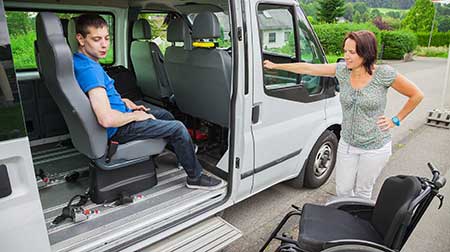Taxi drivers with council contracts to take hundreds of the most vulnerable children to and from school in Brighton and Hove face extra costs because of the coronavirus crisis.
One taxi firm boss estimated that the bill for personal protective equipment (PPE) would be about £1,000 a month once the new term was under way in September.
And it appears that cabbies, or the companies providing transport, will be expected to foot the bill themselves rather than rely on help from the council.
The cost of buying PPE is not covered by the terms of the contracts, which were drawn up before the coronavirus pandemic, and the council said that its role was to provide equipment to those struggling to obtain their own.
The revelation came at a “virtual” meeting of Brighton and Hove City Council’s Home to School Transport Policy Panel on Tuesday (21 July).
Councillors, officials, parents and carers and transport providers discussed ways to make the service run smoothly from September after the chaos of last autumn.
They heard that covid-19 social distancing measures were not required in taxis because government guidance did not count home to school transport as public transport.
The reason appears to be that pupils and staff travel together as a “bubble” each day.
The panel was also told that many of the young people, some with profound disabilities, could not put on masks themselves and were exempt.
But drivers and pupil escorts, known as vehicle passenger assistants, were required to wear masks or visors. In part this was because some children with profound disabilities spit or spray saliva when they speak, laugh, cry or become agitated.
The interim head of the home to school transport service, Regan Delf, told the panel that transport staff, on the whole, did wear face coverings.
She said: “If they can’t access the PPE that they need through the routes that they have then the council has been providing that and will continue to do that subject to availability on our side.”
Ms Delf said that PPE was not a government requirement but a “safe option”.
Taxi firm boss Andrew Cheesman said that he was told that home to school transport was “not on the list” to receive PPE.
He said: “We did approach the council with help for PPE. Unfortunately, the council has turned us down and said they can’t supply home to school transport with PPE.
“The PPE hub is only to assist people in absolute emergencies – and school transport was not on the list.
“At the moment we are having no trouble getting PPE because at the moment we have only got a few routes operating. When we get everything operating, we will need about 500 sets a week.”
Ms Delf said that she would look into the issue with the council’s PPE hub.
While all children were due back at school from September, there were currently fewer pupils in vehicles – and where possible a seat between each child and staff member.
There were some instances when an extra child was in a vehicle if children had travelled together previously. This helped to maintain familiarity, not least with the limited number of vehicles and staff available.
Ms Delf told the meeting that she was looking at creating a bank of emergency staff by recruiting within the council’s existing “sessional” workers. Part-time vehicle escort jobs had also been advertised on the council’s website.
With just six weeks until the start of the new school year, taxi bosses said that they were 80 per cent ready to start the new school year.
Some Disclosure and Barring Service (DBS) checks were outstanding, the panel was told, but the council had offered its enhanced service, which took two weeks.
The panel was also told that – as part of efforts to prevent a rerun of last year’s problems – parents, carers and pupils would be asked to give feedback about this year’s service in November.










